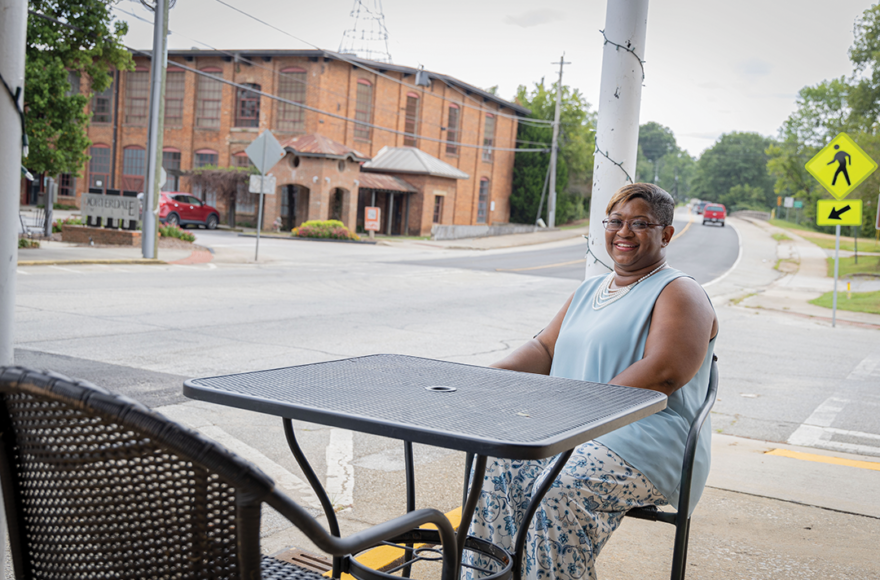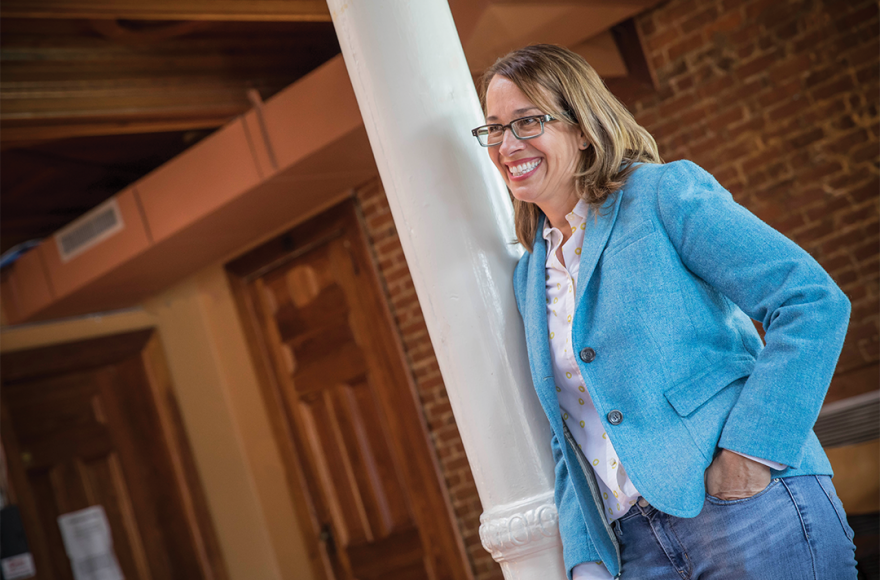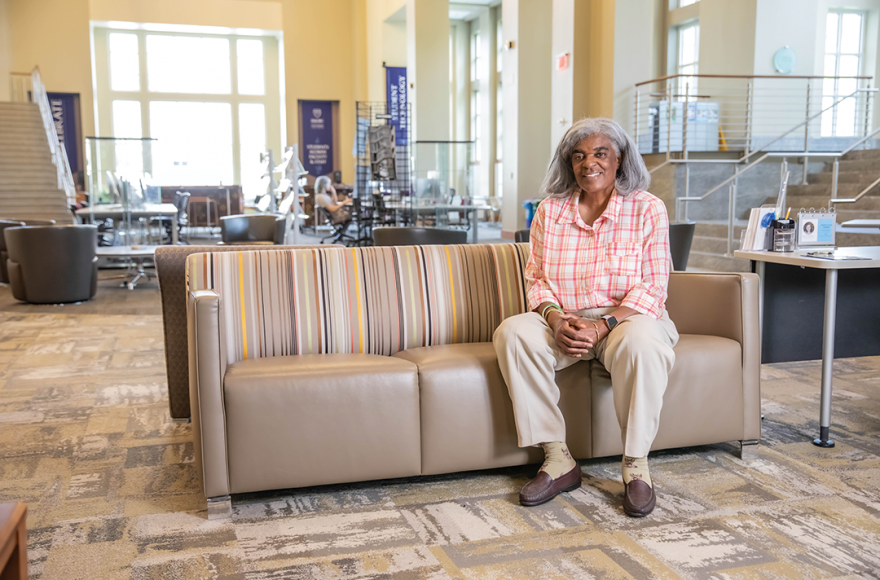Dr. Annise Mabry has a wall full of diplomas. Those degrees have opened dozens of doors throughout her life, but her innate ability to find solutions to insurmountable problems drives all she does. Her passion and persistence now work together to help at-risk individuals live their best lives.

Few doctors become police officers, but Dr. Annise Mabry has been a Georgia certified peace officer since 1995. As head of the Dr. Annise Mabry Foundation, she credits her family for her interest in criminal justice.
“We are a law enforcement family,” she said. “My sister, Patricia Barber, was the first female deputy in Tift County. She was 15 years older than me, and I lived with her growing up. Our dream was that one day we would be like Cagney and Lacey.” To fulfill her dream of becoming half of a dynamic deputy duo, Mabry went through the police academy and got assigned to East Point Police Department. “I was done,” she said with a laugh. “None of this was working out like it did on TV. These people were really mean.”
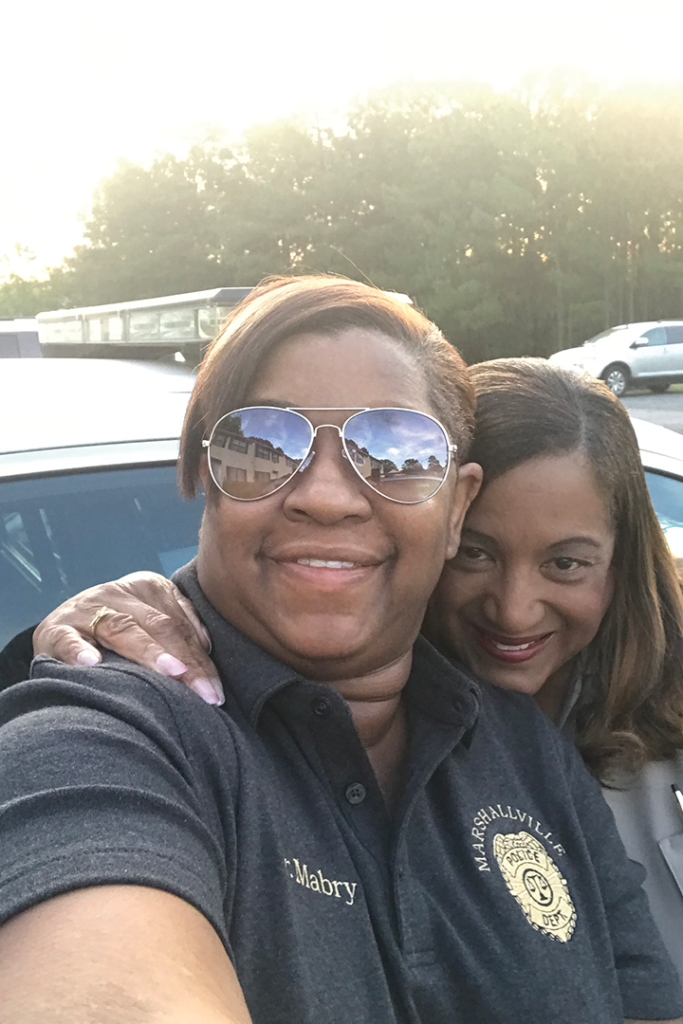
Although Mabry’s street beat was short-lived, her sister’s career in law enforcement continued until a fateful day in November 2016 changed everything. Barber and her work partner of 17 years, Patrick Sondron, were called to respond to a neighborhood noise disturbance. Because it was the end of the day, Sondron told Barber to clock out and took a new deputy, Daryl Smallwood, along for the ride.
Minutes after arriving on the scene, Sondron and Smallwood were ambushed and shot dead at close range. Barber struggled emotionally after the incident and retired from the force a year later.
“That gunman actually killed three deputies that night,” Mabry said. “The sister I knew stopped existing that day.”
“When a community’s dropout rate falls below 20%, that’s when everything changes for law enforcement.”
Dr. Annise Mabry
Mabry felt a burden to create something new for her sister’s sake, something that merged their shared passions for law enforcement and education. The Chiefs’ Diploma Program and the Rural Community Policing Resource Center (RCPRC) were born out of her efforts. The Chiefs’ Diploma Program launched in Macon County to enable small law enforcement agencies in rural communities to offer an alternative diploma program to high school dropouts, especially those re-entering society after incarceration.
Mabry’s foundation worked with Georgia Tech interns in studying how community demographics influence law enforcement interactions. Mabry played around with the data, looking for factors that contribute to negative experiences with peace officers. To her surprise, it was not race that had the biggest impact, nor was it the income level of the people in the community. Additionally, an officer’s level of education made little difference. Law enforcement officers with two- or four-year degrees experienced similar outcomes to those who never went to college.
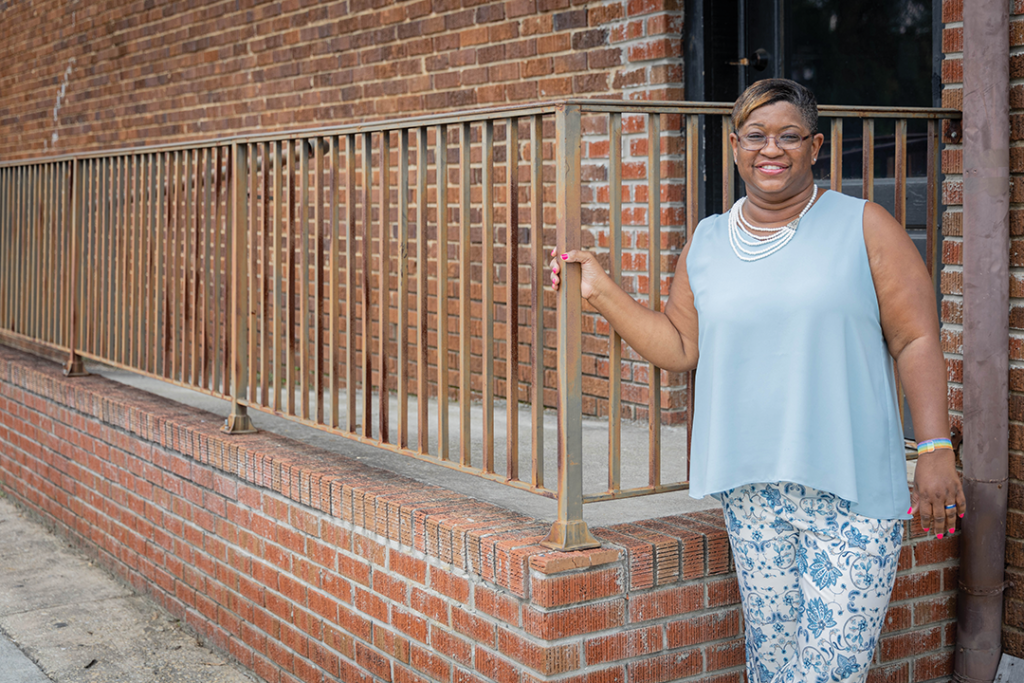
What made the difference in police-community interactions was the number of high school dropouts in the area. Macon County was an ideal place to launch the Chiefs’ Diploma Program because of its small city of Oglethorpe. About the size of Porterdale—the city where Mabry’s foundation is based—Oglethorpe had an unusually high number of dropouts and a high crime level. In fact, five gangs managed one neighborhood where police officers could not even patrol the streets without having cinder blocks thrown at their heads. Just 18 months after the Chief’s Diploma Program launched, the crime rate in Oglethorpe miraculously dropped from 69% to 16%.
“When a community’s dropout rate falls below 20%, that’s when everything changes for law enforcement,” Mabry said. It was not just the diplomas that changed the situation in Oglethorpe but the document’s power to qualify people for better jobs. “First, we got people diplomas. Then we helped them get jobs at Tyson making $18 to $30 an hour. The people we couldn’t get into jobs, we got them into technical college to earn certifications. People started pouring into the program,” Mabry said. “Everyone kept saying, ‘This can’t be real.’”
So far, the diploma program has turned over 150 high school dropouts into graduates. In December, Porterdale will have a ceremony to honor its first class of Chief’s Diploma Program graduates. Porterdale Police Chief Jason Cripps will host the ceremony.

“Porterdale is the seventh city in Georgia to join our program and the first in the Metro Atlanta area to do it,” Mabry said. “The program’s not about starting over but restarting where you stopped. It makes use of Georgia’s homeschooling law to help people get their high school diploma.” The online classes are easy to work around other commitments, and the program has enjoyed a higher success rate than traditional GED programs. “Only 20% of the people who take the GED pass it,” Mabry said. “Eighty percent of them fail, and [most] never come back to retake it.”
Mabry is determined to block all paths that could lead to dropping out of high school. The Rural Community Policing Resource Center was born when she made the connection between student absenteeism and a lack of school supplies. Mabry, her sister and other friends in law enforcement noticed an increase in juvenile mischief calls during the first two weeks of school.
“I needed to figure out why they weren’t in school, why their parents weren’t taking their kids the first couple of weeks,” Mabry said. She realized that it was often due to a lack of money to buy the required school supplies. “I talk a lot about privilege,” Mabry said. “All of us have it in different ways, where we can’t understand other people’s choices, why they do what they do. I don’t know what it’s like to not have money to buy school supplies, but I learned that those parents’ thought process was, ‘I don’t want anyone to know I don’t have money, so I’ll keep my kid at home until I save up enough for supplies and then I’ll send them.’ That meant their kids were falling behind right at the start of the year.”
Because catching up on schoolwork can be so daunting, it was yet another factor that eventually led to disadvantaged rural students dropping out. Mabry’s Rural Community Policing Resource Center began the Backpack with a Cop program to provide school supplies to kids at the end of summer break. It also launched a Christmas with a Cop program to bring holiday joy to disadvantaged children each December. These programs do more than just place resources into families who need them; they connect citizens to the law enforcement officers who vow to protect and serve them.
“These programs and partnerships demonstrate the power of prevention-focused community policing,” Mabry states on her foundation’s website. “When law enforcement agencies and community members work together, they can proactively address the root causes of crime and build safer, more vibrant communities for all.”
Mabry remains grateful for the individuals and corporations that enable her foundation to continue doing good works. The community policing programs are largely funded by grants from the Walmart Foundation, the International Paper Foundation, the DG Literacy Foundation, the United Way of Metro Atlanta, the General Mills Community Foundation and the State Farm Communities Foundation. The RCPRC has also partnered with five different Walmart stores, along with Burlington and Office Depot locations, to acquire school supplies for some of the poorest communities in Georgia.
“A lot of small law enforcement agencies wanted to do more community policing but lacked the resources to do so,” Mabry said. “I’m so excited now that my sister has retired because she coordinates all of that. I love it when we bring a program into a community and they adopt it. As of now, we serve in 78 out of 158 counties in Georgia.”
Mabry also builds bridges between communities and law enforcement officers by teaching workshops on community policing and deescalating.
“The State of Georgia requires officers to have two hours of training in community policing and four hours of de-escalation training,” she said. “We go into agencies and teach them not just deescalating techniques but also how to do it in marginalized communities. Officers have to understand why LGBT and black people won’t report crimes or talk to police and learn how to interact with people with mental illnesses.”
Mabry revealed a running joke at the foundation that demonstrates her resolve.
“It’s from that Vanilla Ice song, ‘Ice, Ice Baby.’ If there’s a problem, I’ll solve it,” she said with a laugh. “I also say if I’m going to be on a sinking ship, I’m going to be the captain, so at least I can determine how it’s going down, because you are not going to sink my ship.”
For information on the Dr. Annise Mabry Foundation, visit www.drannisemabry.com.
Click here to read more stories by Kari Apted.

